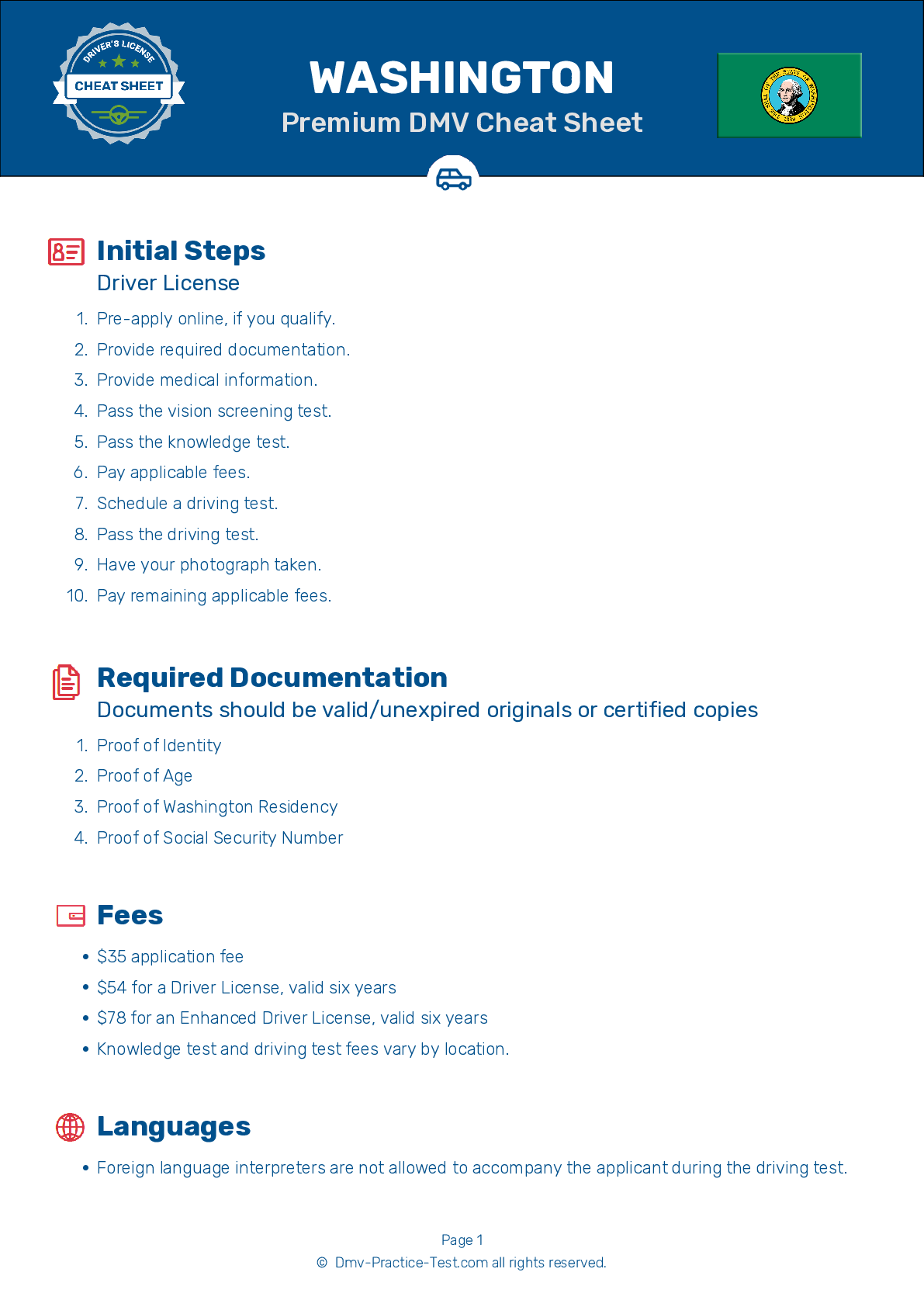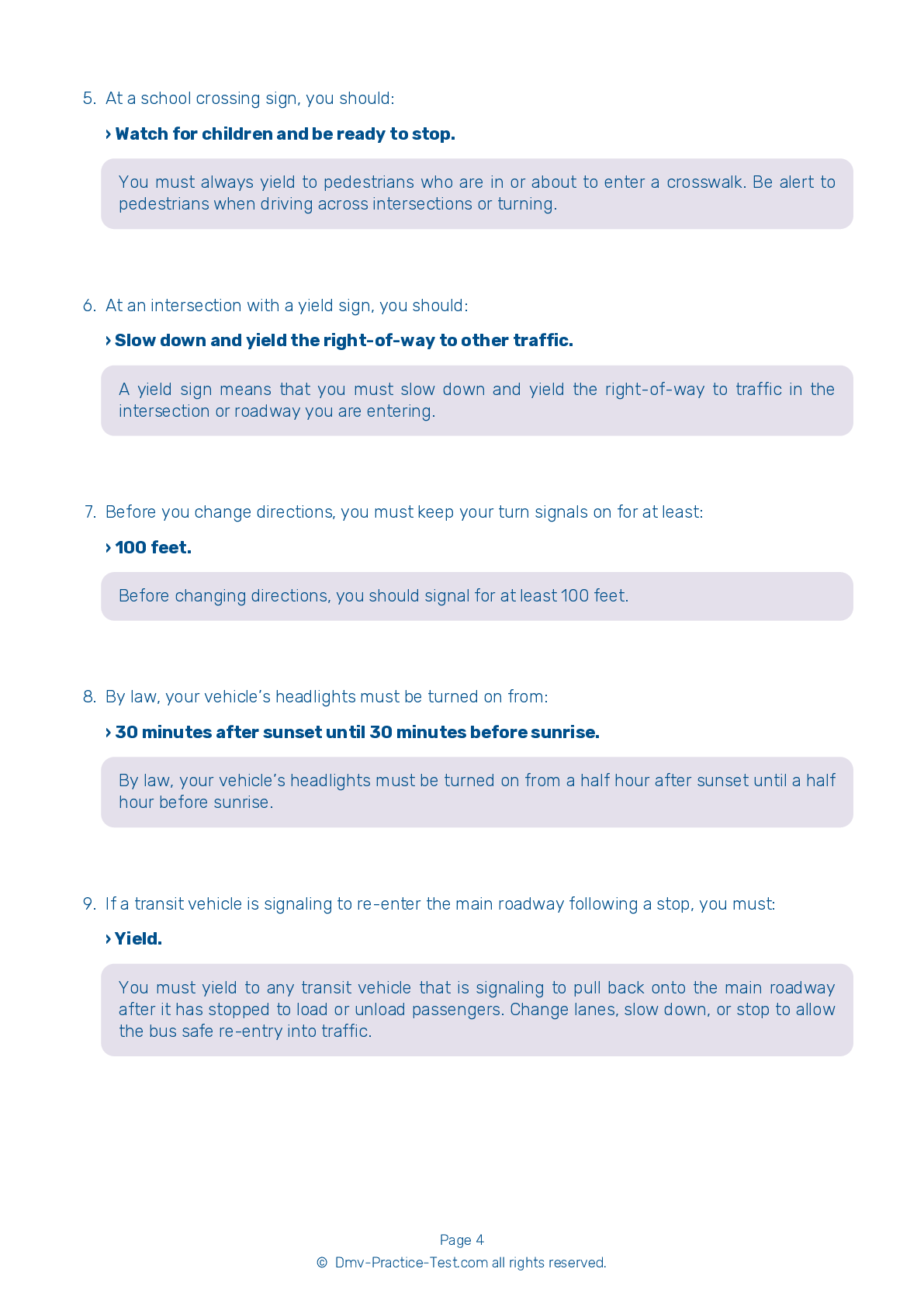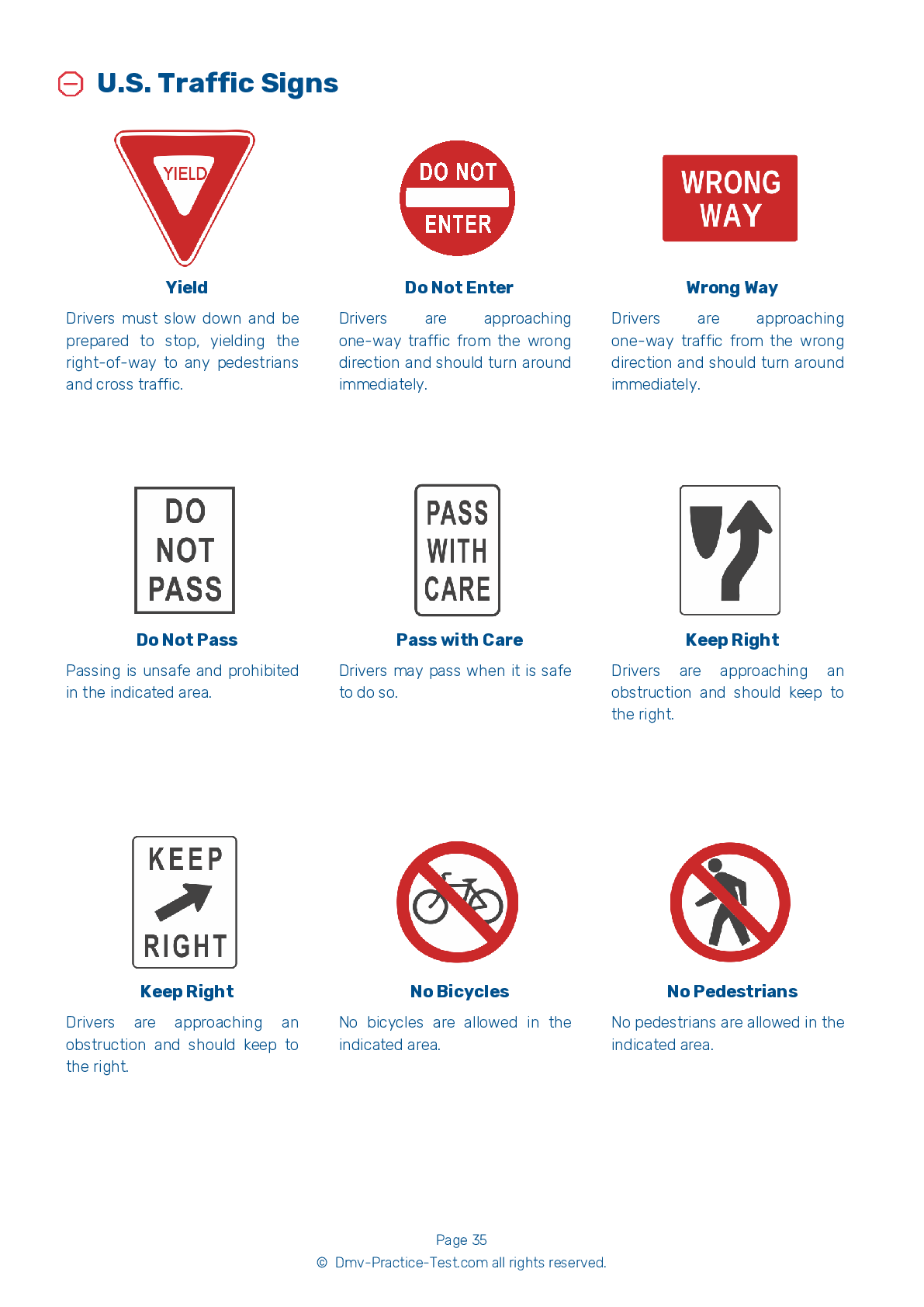FREE Washington DMV Practice Test #17 Page 2 of 4
The Washington DMV practise examinations have been updated for January 2026. It includes questions based on the Washington Driver Handbook's most significant traffic signals and legislation for 2026. Use actual questions that are very similar (often identical!) to the DMV driving permit test and driver's licence exam to study for the DMV driving permit test and driver's licence exam.
On the practise exam, each question gets a tip and explanation to help you remember the concepts. The written component of the official Washington DMV test will feature questions about traffic rules, traffic signs, and driving statutes, as well as knowledge from the Driver Handbook.
To obtain a passing grade, you must correctly answer 20 of the 25 questions. Use the practise exam provided by the Washington Department of Motor Vehicles to help you prepare for your instruction permit or driver's licence.
The DMV exam is available in several languages.
Using any kind of testing assistance will result in an automatic fail, and the DMV may take additional action against your driver's licence, so stay away from it.
7 . You are driving up a hill and are approaching a heavy truck from the rear. You should know that:
Drivers must be aware that large vehicles often travel at a speed slower than the posted speed limit, especially when driving on an incline, and should use caution when approaching a large vehicle from the rear. When on a hill with limited visibility, it is unlawful to pass another vehicle.
8 . If an officer is directing traffic at a working traffic light, drivers should:
Traffic signals are placed at intersections to keep traffic moving and to help prevent crashes. Drivers, pedestrians, and cyclists must obey these signals, except in instances when an officer is directing traffic.
9 . When driving at high speeds, always allow enough room to safely stop in emergencies by staying at least:
If you are driving at a speed of 30 mph or slower, a following time of two or three seconds may be enough to stop safely in the case of an emergency. However, at higher speeds, it is best to maintain a four-second following time.
10 . A traffic signal showing a steady red light means:
A steady red traffic light means drivers must come to a complete stop. You must wait until the traffic light turns green and there is no crossing traffic before you move ahead.
11 . On a sidewalk or in a crosswalk, bicyclists should ride slowly and:
Bicyclists may choose to ride on a sidewalk, unless prohibited by a local agency. Bicyclists must yield to pedestrians on sidewalks or in crosswalks.
12 . At an intersection, a signal showing a green arrow and a red light means:
A green arrow means that you can safely turn in the direction of the arrow. If other vehicles or pedestrians are already in the intersection, you must yield the right-of-way before turning.
Need Car Insurance? No problem!
Compare the best rates in Washington and find a personalized policy that meets your needs.
1. Are You Currently insured ?
2. Married ?
3. Do you own your Home?
4. Do you have more than 1 car ?
5. Have you or a Family Member Honorably Served in U.S. Military ?
6. Your Name
7. Age
8. Zip code
IMPORTANT REMINDER:Auto Insurance is Mandatory to drive in Washington. Get covered before you hit the road to avoid any fines.
Ranked by best match
2026 Washington | Frequently Asked Questions
1. Complete a driver education course if you're under 15 ½.
2. Visit a driver licensing office.
3. Provide proof of identity, Social Security number, and residence.
4. Pass the knowledge test.
5. Pay the required fee.
6. If you're under 18, a parent or guardian must sign the application.
Remember, with a permit, you must always have an adult 21 years or older in the car with you.
1. Not checking mirrors and blind spots.
2. Incorrect signaling or forgetting to signal.
3. Lack of steering control.
4. Improper lane positioning and changing.
5. Not following traffic signs or signals.
6. Inadequate observation at intersections.
7. Speeding or driving too slowly.
8. Failing to yield the right of way where necessary.
Remember, practice is key to overcoming these errors.



